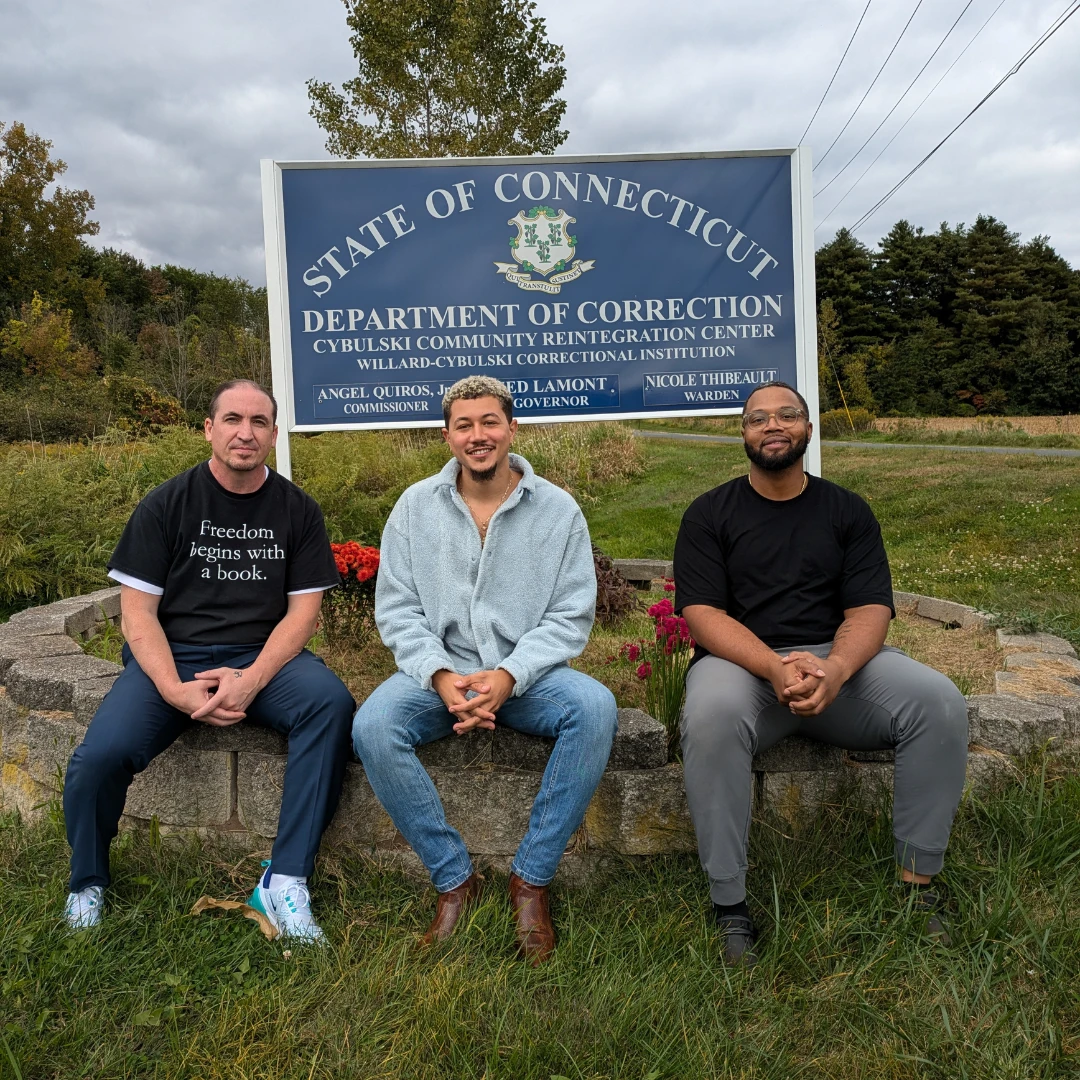Freedom Reads was back at it again, opening 42 Freedom Libraries in three Connecticut prisons: MacDougall-Walker Correctional Institution, Cybulski Community Reintegration Center, and Cheshire Correctional Institution. Prison numbers 36, 37, and 38 visited since my release 22 months ago from seven days short of 30 years Inside. For those of us formerly incarcerated in Connecticut on the Freedom Reads team—Kevin, Mike, Jimmy, David, and myself—these places held memories, both painful and transformative.
Walking The Concourse at MacDougall, the Assessment block at Walker, and the Reintegration Unit at Cybulski where we opened these libraries, the memories of shared meals, baskets scored on the rec yard, and quiet screams for freedom flooded back. The hugs and warm embraces from my brothers, with whom I shared countless days behind bars, were a poignant reminder of our shared history. We all had been through it. Now, seeing the familiar faces – Punchy, Malik, JB, Six, Silkk, Biggs, Dean, E, Kelly, G, Moon, and Wadu – still locked up brought an overwhelming sense of connection and camaraderie. These were men we had struggled alongside, and now we were there to offer hope through the Freedom Libraries.
Chris, or “Silkk” for those that know him-know him, who had traveled the same blue van as us on a grueling DOC transport journey from MacDougall to Cybulski a few years back, was still serving his sentence. Seeing him again, us now free and filled with hope for the future, was a powerful testament to the change that can happen once we are given a second chance. When Silkk asked Dwayne, Freedom Reads Founder & CEO, about my contributions to the Freedom Reads team during the Q&A session, it was a moment of deep pride—pride in the work I have done since being home. Dwayne told the story of me overdressing for my first day on my first job coming out wearing a suit, then likening it to the humility required for those “fresh out.”
These encounters brought up conversations about how much time was left on their sentences and their dreams of coming home to join us in this work were constant. The yearning to be a part of something greater, to contribute meaningfully to society after paying their debts, was palpable.
When Deputy Warden Mu’min invited David, Mike, and me to speak to the men in the E Unit about what coming back meant to us, we were not just addressing them as former prisoners. We were returning as examples of what can happen when freedom becomes a tool for change. I referenced the photos of David and me hanging in 8-Cube of us free, in street clothes, modeling success. David referenced the Cubes where our bunks were when we served our last days in the dorm. Mike spoke about taking the morning meetings and making them more than just words on the Outside.
The Unit Talks, where we addressed the new Freedom Library Patrons, were not just about the origin story of Freedom Reads or the fact that our team is some 50% formerly incarcerated. It was about something deeper. Our message to them was clear: the world is ready for you. We talked about how freedom, dignity, and opportunity await them, and how the Freedom Libraries they now have access to can open new doors for their future.
Freedom Reads is not just about opening libraries; it is about opening doors of opportunity, understanding, and redemption. Mike's return to the housing unit, where he was once incarcerated, felt like a reunion of family members. Fast friends made in confinement had become brothers for life. Hugs quick enough to mask the emotion behind them, in fear that one of these grown men might tear up. Seeing dudes like Punchy, Malik, JB, and the others again in those familiar halls was surreal. We shared stories of survival, transformation, and the power of literature. While we shelved books in the Freedom Library, one of the guys asked me what book had changed my life. I immediately thought of The Count of Monte Cristo. Like Edmond Dantès, coming out the other side of the Chateau d’If, I had struggled with anger and resentment along the decades of my confinement. But the book’s twist of fate—the realization that vengeance is not the path to freedom—resonated deeply. Literature had the power to change my life, and now, through Freedom Reads, it can change the lives of many more people behind bars.
Our return to these prisons wasn’t just symbolic; it was the embodiment of transformation. We shared nods of respect with correctional officers who had once supervised us, now acknowledging us as men who had come back not as prisoners but as agents of change. It’s a message to every person still Inside: freedom is more than just the physical release from confinement—it’s the ability to build a future, one book, one conversation, and one act of kindness at a time. Seeing these men again—now with the promise of freedom on the horizon—reminded me that the work we’re doing is about creating opportunities for all of us to rewrite our futures.
